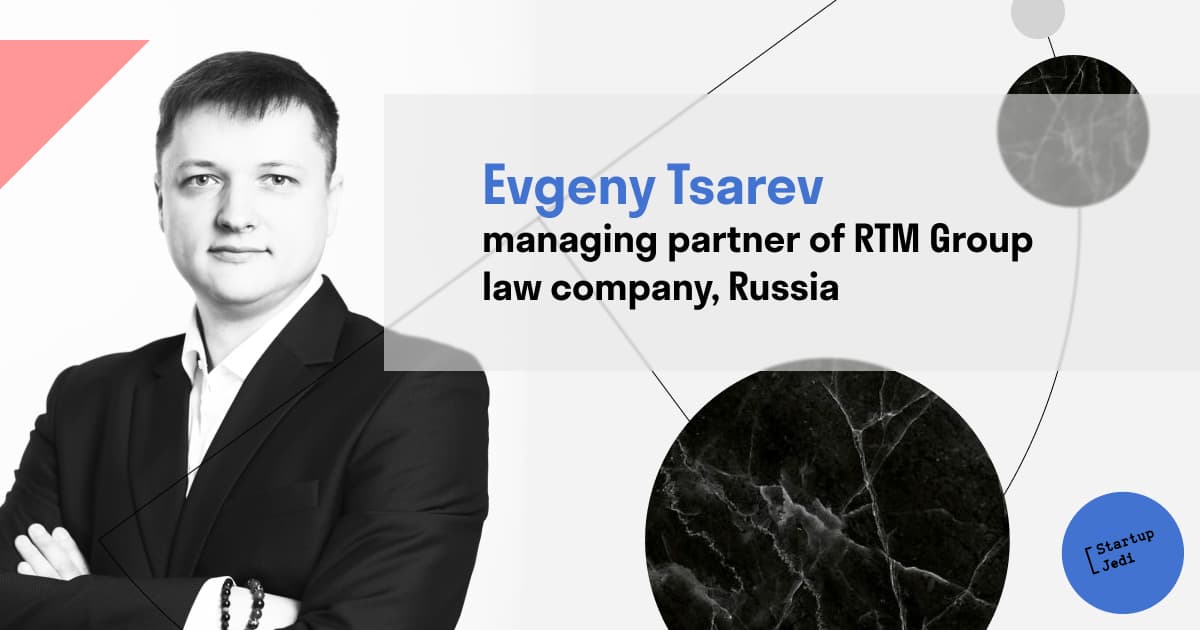
Startup Jedi
We talk to startups and investors, you get the value.

Startup Jedi
We talk to startups and investors, you get the value.
When you’re just getting started, the last thing you want to think about is the end, which applies both to relationships and business. But according to experts, discussing the key points of the possible “divorce” even when creating the organization will help you avoid unnecessary spending and stress. We talked to experts from Russia, Belarus and Ukraine who shared what nuances you can face when separating a tech business, what to do if partners are not ready to compromise, and what to do if the separation has not been discussed in advance.
...

— In large organizations, a partnership agreement is usually concluded at the stage of founding a joint venture, which provides for the option of “divorce”. It is written down how exactly the profit or loss will be divided, how the liquidation procedure will take place, and so on. In startups, on the other hand, rarely think about exiting a deal in advance, while the separation of the business depends on how the rights are formalized and whether legal entities for joint activities were created. For example, in practice, we often come across the situation when the company’s activities were carried out through one of the partners who worked as an individual entrepreneur, while domains and hosting are registered to another. And when these partners break up, one takes all the domains and the other still has debts.
In the IT field, there are founders and there are developers. According to Russian law, until the “coder” directly transfers his rights to a legal entity and receives a remuneration for this, he formally has the right to his code. And if the company did not do this, did not formalize the rights to develop, it may encounter problems without any separation. The lead coder can leave and say: “I worked all the time, I got a salary, but I reserve all the rights.”
It also happens that partners plan to share their business, but then it turns out there is nothing to share. Let me give you a real-life example: a fairly large regional-scale online store with 15 offline shops was registered to the wife of one of the founders. The offline points of this store themselves were partially owned by the father of the second founder. Some offices were rented but registered to someone else. This helped the company optimize taxes. To this end, it turned out that according to the documents, neither of the founders owned anything.
Let’s say we are running an online store together. The easiest and oftentimes the only correct way to separate is to buy out the share. In fact, this is not even a division — a similar procedure is called buyout (an investment transaction in which the equity of a company or a controlling stake in a company is acquired. Thus, the acquirer “buys out” the current shareholders of the target company. — Startup Jedi). Accordingly, the project continues to exist and owners gradually come to some mutually agreeable settlement.
...

When separation negotiations begin, the parties can sign an agreement of intent. Some at this stage, on the contrary, conclude partnership agreements, although they are separating. Sometimes it is easier to conclude a partnership agreement first, and only after that deal with some kind of separation.
In the agreement of intent, it is mentioned who owes what to whom, what the next steps are, and so on. For example, you can write down that one is obliged to transfer rights by such and such an agreement, certified by a notary, before such and such a date; the other party must transfer funds in the amount of such and such from such and such an account of its own to such and such an account of the second partner, and so on. If all this is fixed, then there is a chance to reach a logical conclusion, so there’s love, peace and harmony in the end.
The letter of intent is best done with a professional. After all, conditions are sometimes written down independently, which the court may not accept in the future. It’s like in a marriage contract in Russian jurisdiction, when non-property issues cannot be foreseen, for example: a wife must make love to her husband at least five times a week. Of course, you can include this and other similar things that you agreed on. But then this clause, most likely, will be recognized as insignificant since it goes beyond such an agreement format.
If the case is not brought to court and all the points of the agreement are observed you can safely separate in 1–6 months, depending on the company.
It happens that the owners fail to come to an agreement. Then you can ask a mediator for help in negotiations. I do not recommend bringing the case to court, as it can take years. And it will not only take ages but will also be insanely expensive. After all, you’ll have to pay for the work of specialists and cover legal expenses. Besides, while you are in litigation, the business may die, meaning it’s a lose-lose situation.
If we talk about how easy it is to separate, then it is usually easier to divide a joint-stock company between partners than other organizations. For example, if an organization owns several products, it is possible to separate one company from the structure of the entire company, which will retain the rights to one product, and then another one will have the rights to the second. It is also easier to separate a small business that has several founders — legal entities.
In case the partners of the company are a husband and wife who are getting divorced, according to Russian law, everything is divided in half.
There is no one law that regulates the separation of the technology business in Russia. But in the laws on joint-stock and limited liability companies, there are corresponding provisions: liquidation and reorganization, which describe the corresponding procedures of various kinds. Such procedures are standard in the world. Everything you can find in Germany can be also seen in Russia — only with certain specifics, for example, working with the tax authorities.
Also, when separating, it is worth focusing on the articles of the Civil Code of the Russian Federation. Let’s say we don’t have a law on cryptocurrency — in this case, we look at the code and act according to what is written there.
Facebook: facebook.com/StartupJedi/
Telegram: t.me/Startup_Jedi
Twitter: twitter.com/startup_jedi
Comments